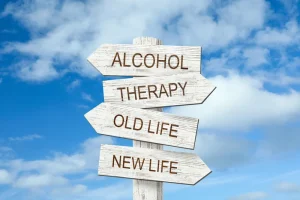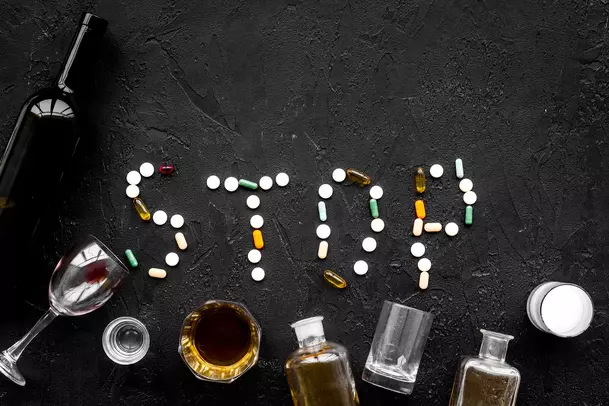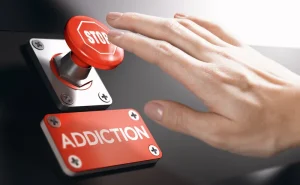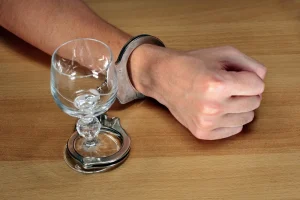
The purpose of this review is to increase the awareness of the early clinical manifestations of AWS and the appropriate identification and management of this important condition in a neurological setting. Medications are often https://ecosoberhouse.com/ used to manage the symptoms of alcohol withdrawal safely. Benzodiazepines, such as diazepam (Valium) or lorazepam (Ativan), are commonly prescribed to reduce withdrawal symptoms and prevent complications like seizures.
- In other words, even once the worst is over, it might still take you a few days to feel better.
- If you or someone you know shows signs of delirium tremens, go to the emergency room immediately.
- Because confusion is a key symptom of DTs, people with this condition can’t make informed choices about their care.
- She adds that withdrawal can also occur after a significant reduction in alcohol consumption.
- Some of these remedies can be useful during withdrawal itself, and some are more helpful as you cope with cravings.
- A relative or friend must stay with you to monitor your condition.
Outlook for alcohol withdrawal syndrome
Medicines called benzodiazepines can lessen alcohol withdrawal symptoms. Commonly used medicines in this group include chlordiazepoxide (Librium) and lorazepam (Ativan). If you have a sibling or parent with alcoholism, then you are three or four times more likely alcohol withdrawal than average to develop alcoholism. Some people with family histories of alcoholism choose to abstain from drinking since this is a guaranteed way to avoid developing alcohol dependence. If you are concerned about your drinking, speak with your doctor.

Support Groups
Those with a wider circle of support have a better chance of staying sober. On average, an alcoholic who doesn’t stop drinking can expect to decrease his or her life expectancy by at least 15 years. The following list of medications are related to or used in the treatment of this condition. During an exam, they’ll look for other medical conditions to see if they could be to blame. Over time, your central nervous system adjusts to having alcohol around all the time. Your body works hard to keep your brain in a more awake state and to keep your nerves talking to one another.
1. Questionnaires to detect alcohol use disorder
This thought process can be a useful mental tool when the physical pain of withdrawal is most severe. Tell your close friends and family before you begin your detox, and ask them to support you. Consider creating a visiting schedule so you are never alone during the first week of detox. A supportive friend or family member can help you in many ways during withdrawal. Learn 18 ways to keep your mind occupied while facing alcohol withdrawal. Many individuals experience better recovery outcomes when they continue to “step down” in care after detox.
- Your doctor’s treatment goal is helping you stop drinking as quickly and safely as possible.
- Your body may get overloaded because it has no alcohol to counteract your now perpetually excited nervous system.
- People who drink daily or almost every day should not be left alone for the first few days after stopping alcohol.
- AUD is the most common substance use disorder in the U.S., affecting 28.8 million adults.
- Unstable vital signs increase the risk of complications and can be managed with medications.
Alcohol Withdrawal Timeline

If your pattern of drinking results in repeated significant distress and problems functioning in your daily life, you likely have alcohol use disorder. However, even a mild disorder can escalate and lead to serious problems, so early treatment is important. During alcohol detox, medication can ease your discomfort and prevent symptoms from worsening. According to Hilary S. Connery, MD, PhD, the clinical director of the division of alcohol, drugs, and addiction at McLean Hospital in Boston, withdrawal medications are suitable for most people. Alcohol withdrawal that progresses to delirium tremens causes intense hallucinations, as well as severe confusion, disorientation, and agitation.

2. Additional markers to detect AUD
Multiple dosing strategies have been utilized in the management of AWS. Those with severe or complicated symptoms should be referred to the nearest emergency department for inpatient hospitalization. The main symptoms of DTs often take between three to seven days to go away. In severe cases, you may experience some symptoms for weeks to months.
Delirium Tremens
Alcohol withdrawal symptoms can range from being a slight nuisance to extremely uncomfortable. In turn, it can be challenging to learn what helps with alcohol withdrawal. If you have an alcohol dependency, then you’ve likely been using alcohol for some time. Long-term alcohol abuse is commonly caused by an underlying condition or physical pain in which alcohol was used to self-medicate those issues.

1. Benzodiazepines
Although you might be tempted to tough out withdrawal symptoms by yourself, it’s not worth the risk. You’ve taken an important first step toward recovery by deciding to stop drinking. Now, try to keep in mind that even though withdrawal symptoms may be unpleasant, they’re temporary, and treatment is available during this time.
Health Alerts from Harvard Medical School

But as you continue to drink, you become drowsy and have less control over your actions. The doctor may ask for evidence that there has been a decrease in alcohol use after regular heavy use. Anyone that thinks they are dependent on alcohol should consider speaking to a doctor. If you need help finding a primary care doctor, then check out our FindCare tool here. Remove all alcohol from your home or ask a friend or family member to do it for you.
- Commonly used medicines in this group include chlordiazepoxide (Librium) and lorazepam (Ativan).
- Withdrawal symptoms can quickly go from a bad hangover to a serious medical situation.
- People who experience alcohol withdrawal often live with a chronic alcohol use disorder, which is sometimes referred to as alcohol abuse or dependency.
- Alcohol withdrawal syndrome (AWS can cause a range of symptoms, from mild anxiety and fatigue to severe hallucinations and seizures. In extreme cases, it can be life threatening.
- Alcohol withdrawal is common, but delirium tremens only occurs in 5% of people who have alcohol withdrawal.




